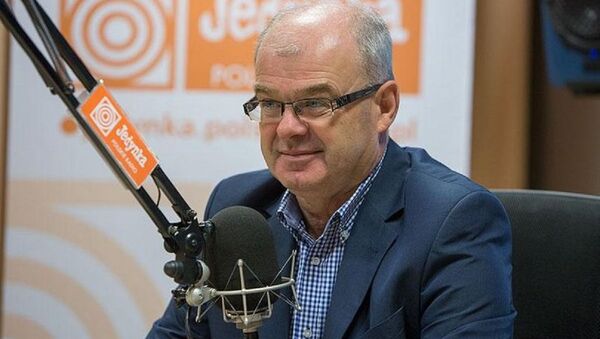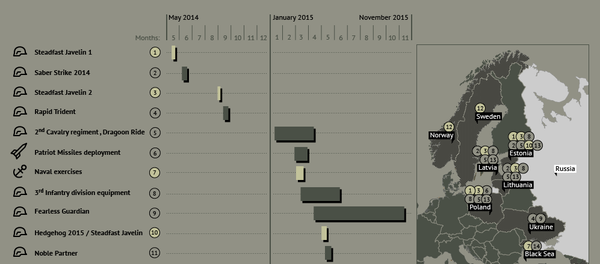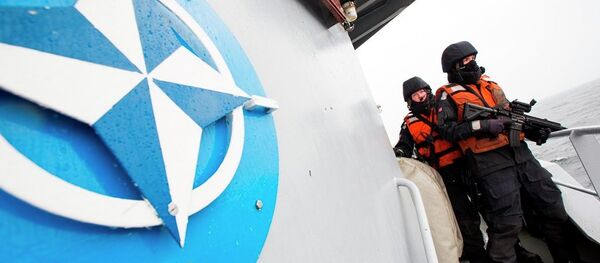Skrzypczak noted that under the present balance of forces, the expanded Eastern European Rapid Response Force can handle the appearance of Russian 'little green men' "with ease." However, ramping up the paranoia and alluding to a Russian fifth column in the Baltic states, the ex-general added that "the aggressor acts not only with the help of special forces. His activity can be observed in a variety of fields –from military to political and the ethnic factor." Skrzypczak did not make clear how this "ethnic factor" should be dealt with, noting only that "it is very important to understand what is happening and to provide a timely warning about the opponent's [potential] actions."
Commenting on the growth of NATO military might along Russian borders, including a growing permanent military presence, expanded and intensified exercises, Lithuania's return to conscription, and Poland's own intensive rearmament, Skrzypczak noted that NATO governments' earlier policy was naïve for "blindly believing that good relations with Moscow [would] last forever," adding that the conflict in Ukraine, for which he blamed Russia, "fell [on European politicians] like a cold shower." In the general's view, NATO's more aggressive posture "is the only way to cool the hotheads in Moscow."
Boasting that the generals of the Russian army "likely think of a conflict with NATO as a bad dream," Skrzypczak noted that NATO's military potential "exceeds at least several times the capabilities at Russia's disposal," adding that even on their own, the combined forces of Poland, Lithuania, Latvia and Estonia would be a "tough nut [for Russia] to crack." In the ex-general's view, a war with NATO would "plunge Russia into chaos from which it would be unable to recover," and for this reason "full-scale hostilities are not a threat."
Blaming Russia for the civil war in eastern Ukraine, caused in no small part by the radical nationalism supported by Kiev, Skrzypczak noted that while Russia is presently "trying to return to the international scene as peacemaker," he remains hopeful that "the West will remain alert."
Skrzypczak served as the commander of Poland's land forces between 2006-2009, serving as the country's deputy defense minister between 2012-2013.




